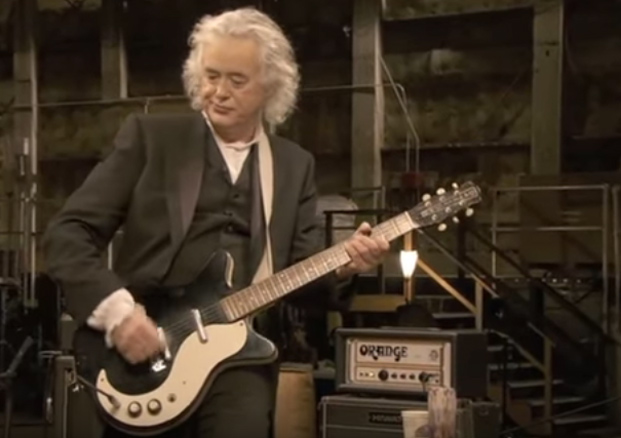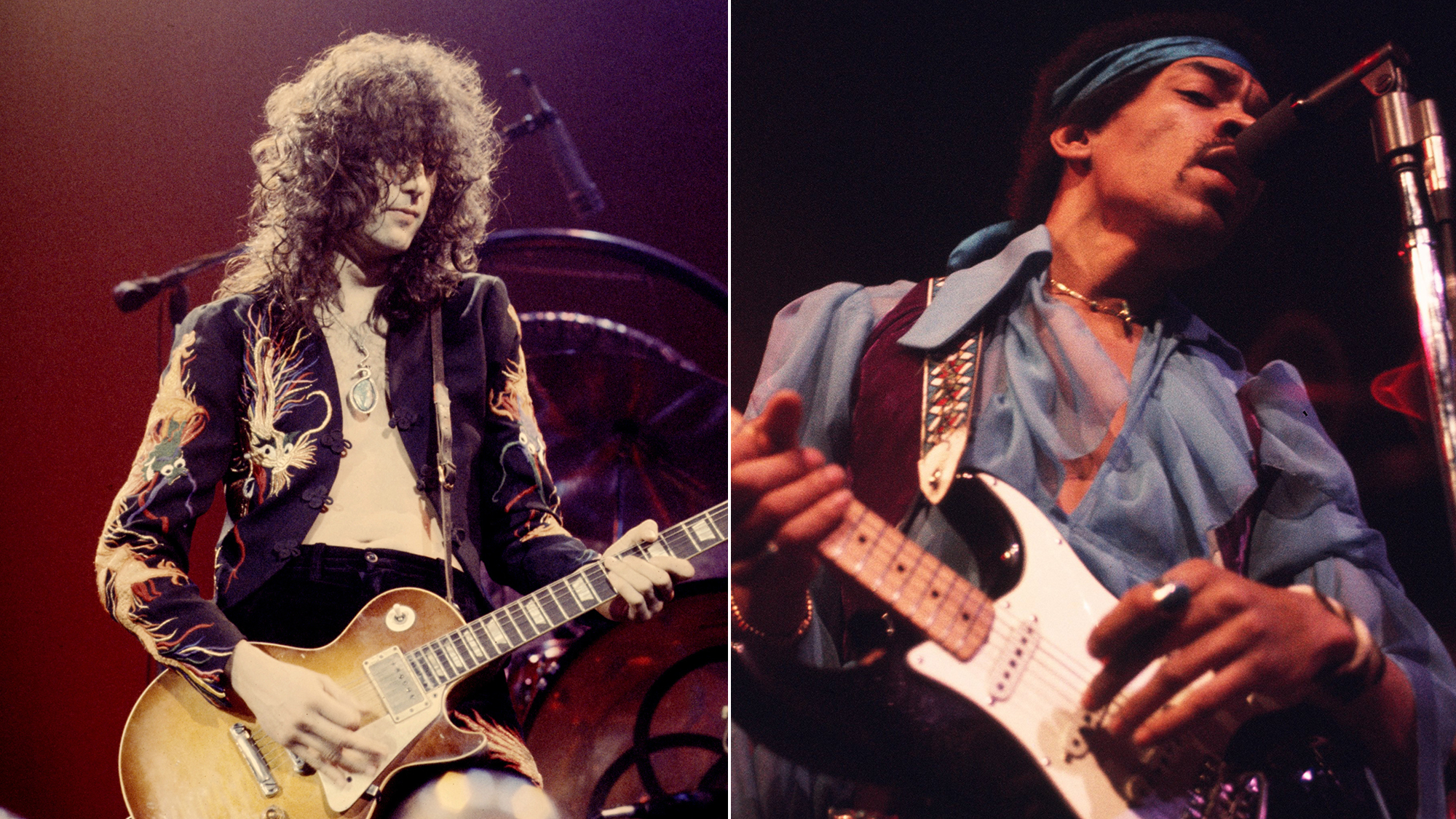Jimmy Page Explains the Roots of Led Zeppelin's "Kashmir"
Danelectro double cut-away 3021 in hand, Jimmy Page breaks down the "Kashmir" riff.

At one point in the 2008 documentary It Might Get Loud, U2 guitarist The Edge asks Jimmy Page, "Where did ["Kashmir"] come from? That rhythm and that feel?"
Page is happy to explain.
He stands up, grabs his Danelectro double cut-away 3021—the same one he used in his Led Zeppelin days—and starts chugging away on the classic tune, a highlight of Led Zep's 1975 Physical Graffiti album.
Before he starts, however, he explains that "Kashmir" had developed from another song he was working on ("Swansong"); that tune apparently ended with what would become one of more recognizable "Kashmir" guitar riffs.
Played in DADGAD tuning, which Page had previously used on the Yardbirds’ “White Summer” and Led Zeppelin’s “Black Mountain Side,” “Kashmir” is built around four mesmerizing riffs, three of which involve the use of open-string unison- and octave-doubled notes, which create a natural chorusing effect and a huge wall of sound.
Particularly noteworthy is the way Page overlaid, at 0:53 (on the original recording), the song’s menacing, ascending riff—the James Bond–theme-flavored part—on top of the recurring descending sus4 chord sequence.
Page explained in a recent Guitar World interview, “The descending chord sequence was the first thing I had—I got it from tapes of myself messing around at home. After I came up with the da-da-da, da-da-da part, I wondered whether the two parts could go on top of each other, and it worked! You do get some dissonance in there, but there’s nothing wrong with that. At the time, I was very proud of that, I must say.”
Get The Pick Newsletter
All the latest guitar news, interviews, lessons, reviews, deals and more, direct to your inbox!
“It was tour, tour, tour. I had this moment where I was like, ‘What do I even want out of music?’”: Yvette Young’s fretboard wizardry was a wake-up call for modern guitar playing – but with her latest pivot, she’s making music to help emo kids go to sleep
“There are people who think it makes a big difference to the sound. Stevie always sounded the same whether it was rosewood or maple”: Jimmie Vaughan says your fretboard choice doesn’t matter – and SRV is his proof







![John Mayer and Bob Weir [left] of Dead & Company photographed against a grey background. Mayer wears a blue overshirt and has his signature Silver Sky on his shoulder. Weir wears grey and a bolo tie.](https://cdn.mos.cms.futurecdn.net/C6niSAybzVCHoYcpJ8ZZgE.jpg)

![A black-and-white action shot of Sergeant Thunderhoof perform live: [from left] Mark Sayer, Dan Flitcroft, Jim Camp and Josh Gallop](https://cdn.mos.cms.futurecdn.net/am3UhJbsxAE239XRRZ8zC8.jpg)
